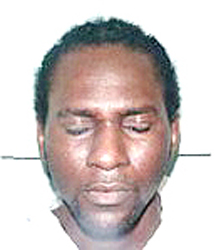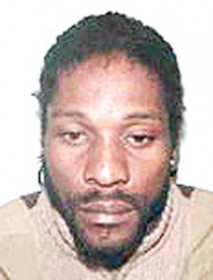Evidence used in foreign courts to convict Guyanese of offences such as drug trafficking could and has been used in local courts to move against their assets under the anti-money laundering law, Attorney-General Charles Ramson has said.

While President Bharrat Jagdeo said late last month that he was “not very happy that no one was prosecuted under the old or new money laundering law,” Ramson recently told Stabroek News that they had moved to the court in an effort to seize assets associated with persons convicted of drug trafficking in the United Kingdom.
According to Ramson, the country’s legislation is quite adequate to meet the “exigencies of whatever seizure has got to be done but is a matter of acquiring the evidence.”
Attorney-at-law Raphael Trotman agrees that information from other countries could be used in local courts. He said that the transnational nature of crimes involving trafficking in narcotics and money laundering makes it necessary that there be a paper trail and “you can and it is expected you [will] rely on evidence and documentation from other countries.”
President Jagdeo had expressed his displeasure to Head of the Financial Intelligence Unit (FIU) Paul Geer late last year but he said the unit had done some work on financial flows and assessment of assets.

“But I think we need to move to actually [prosecute] because that was the purpose of this legislation…to go after assets that people accumulate from criminal proceeds and that they build up so that’s very important,” he added when he responded to question on whether under the legislation the government could seize the local assets of drug kingpin Roger Khan and other drug traffickers convicted overseas.
There have been some criticisms over the fact that there was no local action on the assets of not only Khan, who is now serving a 15-year sentence in the US, but also former race car driver Peter Morgan and another businessman David Narine, all of whom were convicted of drug trafficking in the US.
‘Bling, Bling’
According to Ramson, Guyana can use any information that has the “ring of truth” to go after persons’ assets and he said the country has used information coming out of the United Kingdom, to seize persons’ properties in Guyana.
“But it has never been paid any attention by the media,” he stated. The seizure had however not been publicised by the government here before. “There were some people who were convicted of drug trafficking and money laundering in England and we have actually seized their bank accounts on the order of the current Chief Justice and we are in the process of moving against some others,” the Attorney-General told Stabroek News recently.

“You would be surprised to find that it is not the bank accounts and properties that have been built; those are not the properties of the well-known alleged drug traffickers,” he said.
Stabroek News understands that the UK case Ramson referred to was one that wrapped up in 2006 where 14 members of the British segment of an international cocaine smuggling network were jailed for between five and 27 years.
Police in the UK had said the group of people – dubbed the “Bling Bling” gang because of their high-living lifestyles – made up one of the biggest drug rackets ever brought to justice in that country.
The gang, whose members were mostly of Guyanese and Caribbean descent, had bases in London, Paris and New York and made huge profits.
Police had said that the British contingent, mainly foreigners whose legal immigration status had lapsed, had smuggled about £50 million worth of cocaine into the UK in just two years.
The gang turned the cocaine into crack, a highly addictive form that could have been sold for as much as six times its unaltered value.
According to reports, local authorities had moved against a bank account held at a bank here by someone living here, but which was connected to Bernard ‘Kofi’ Clarke, 31. Clarke was described in court as a “principal player” in the gang and was jailed for 18 years and recommended for deportation after pleading guilty to importing cocaine and manufacturing and supplying crack.
Clarke’s partner, Lisa Bennett, 39, was also sentenced to 18 years imprisonment and recommended for deportation. The court had heard that Clarke and Bennett had acted as the “cooks” to produce the crack.
The bank account, which was in the name of a Guyanese woman living here, was ordered frozen even before the two were jailed. But following an application by attorney-at-law Nigel Hughes, Justice Brassington Reynolds ordered that the woman have access to the bank account. The order was made on September 3, 2008.
Guyanese Ian ‘Bowfoot’ Dundas-Jones was said to be the principal person in the Bling Bling Gang.
‘Desperately’
When he was asked specifically about using information from the US, Ramson said the local authorities were waiting “desperately” for some evidence from the United States in relation to the burning down of the Ministry of Health.
“I know for sure because I was involved in it, we have made the request … Their privacy laws don’t allow for the FBI and the DEA to provide us with the relevant information, but we would like to put our hands on the man. He is a Guyanese too.”
But while Ramson mentioned the Ministry of Health fire – and the fact that Guyana is seeking the user of a telephone number who reportedly made calls to Guyana from the US before and after the fire — he made no mention of Khan or the others convicted in the US.
Khan is believed to be the owner of several entities, including a carpet cleaning business and he also had interest in several night clubs. Through his DreamWorks Housing Development Company, he constructed hundreds of houses at Good Hope on the East Coast, Blankenburg on the West Coast, and at New Hope and Farm on the East Bank.
But most importantly Khan is also said to be the owner of Kaow Island in the Essequibo River, where he had a timber business.
Narine and Morgan are also said to own several businesses. Apart from being part owner of Morgan’s Auto Sales Company, Peter Morgan is also believed to be the owner of several buildings on Vlissengen Road.
Narine owns properties in Essequibo including what was once known as a resort and he also purchased land at Almond Beach. A building on Robb Street believed to be owned by Narine is currently up for sale.
‘Can and should’
According to Trotman on a government-to-government level Guyana “can and should” be actively speaking to counterparts, particularly in the US, and requesting from them any information that could be useful to any local investigation.
However, he cautioned that it is not a matter of moving from getting information to seizing assets but rather that a case has to be built and “due process has to take place” such as making an application to the court for any movable property to be seized. During the court proceedings the person who owns the property–in many cases the property may not be in the name of the person under investigation–has a right to be heard.
Asked for a reaction on President Jagdeo’s recent criticisms of Geer, Trotman told Stabroek News he was surprised since the FIU has been around for eight years and its head was appointed by the President.
“So I find it strange that the President could in public make these statements about disappointments [when] in a sense he is expressing disappointment of himself. Because these are his decisions, these are his appointments and if there was no action by the FIU it meant that he did not direct that action be taken,” Trotman said.
Trotman surmised that the President is “quite good at making these glib public statements” but the “proof of the pudding is in the eating and when we look at the track record it is dismal.”
He pointed out that the same could be said for the Customs Anti-Narcotics Unit (CANU) as while the seizures of cocaine are increasing they are just small amounts; the large amounts are being seized overseas, mainly in the US.
The AFC leader said he has every reason to believe that Geer can deliver but “when you appoint a person and you tie their hands behind their back, [that person is] an appointee in name only …not allowed to exercise … authority and power fully the way the law expects….”
He said the FIU has powers which are not being exercised adding that many laws have been passed in Guyana which he believes are instituted for the “purpose of satisfying some foreign requirement either for IDB, IMF or World Bank or a foreign government particularly the US to give us certification at a certain level but we are not interested in implementation.”
‘Troubling’
Meanwhile, Trotman said that he finds President’s Jagdeo’s statement at the last police officers’ conference, which in essence urged them to go after the small drug houses that are destroying the society, “troubling”.
“Implicit in that statement is [the] recognition that crime and poverty are tied and yes these drug houses no doubt exist but these are the communities of the poor… the communities that have helicopters hovering over them and men with AK-47 moving in on pre-dawn raids…”
He said while he has no problem with the raids he wants to see a “corresponding practice or duty on the part of the joint services with the AK-47s and their helicopters to go into some more highfalutin communities as well where there are serious criminals living.”
He labelled the President’s statement as “superficial and hypocritical” as it resulted in the joint services only going after those who are helpless and those who might have turned to the use of drugs as a way of liberating themselves economically.
“Whilst the other ones, the ones that (former Minister of Home Affairs) Gail Teixeira spoke about, she said ‘don’t go into their (businesses)’ and so we all know who they are… nothing is done to them and I think in a society like ours it sends mixed signals. It is dangerous and it is not helpful for social cohesion.”
He said while the police and the army have a right to go out on raids in any area, people are clearly seeing “that the crimes are also taking place in some big shot areas and nothing is being done to those people so you are really exacerbating a problem rather than solving it.”
Trotman said he believes the raids should be continued but they must be done professionally and the manner of just seizing people’s assets is not the right way. “You wouldn’t go into a Lamaha Gardens where I live and take away a person’s vehicle and then tell them when they coming to the station bring a receipt and prove how you get it,” he said.
He suggested that the police force should go back to the days when they had legal advisors who would assist them in carrying out their duties not only more professionally but also respecting the Constitution.
The lawyer said the Constitution guarantees one the right to ownership of property and if the state is going to interfere with the right to own property, it should not be done in a trivial manner but rather there must be just cause.
“And just cause means evidence on which it could be established and proven beyond a reasonable doubt that these are the gains from an illicit or illegal trade in narcotics or some other crime,” he added.
He said the persons should not be forced to be involved in a mini trial at the level of the police as it is for the courts to decide such issues based on the evidence produced.